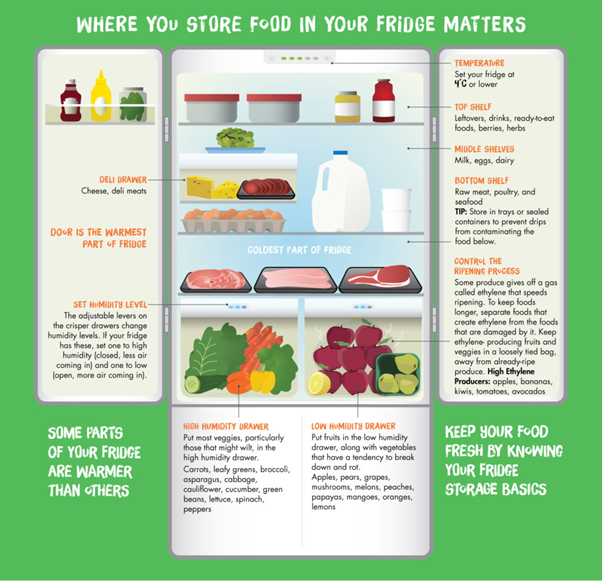Globally, it’s estimated that 1/3 of all food produced for human consumption goes to waste every year – that’s around 1.3 billion tons! This is a huge problem, especially as we have limited resources to feed an ever-growing population. It is therefore essential we work to avoid waste and make the most of what we have.
Food waste at Newcastle University
Newcastle University is highly aware of the issues surrounding food waste and has implemented several initiatives to combat this. These include:
- Giving excess food to local food banks and to our new Student Pantry.
- Catered events are advised to order an amount of food which is less than the amount of people visiting so there is less waste.
- Ingredients which are left over are used to make other meals if possible.
- If one food outlet closes earlier than another, the food is transported to another that is open later.
The university also has food waste bins across campus. This waste is taken by an external contractor to an anaerobic digestion facility. Here, billions of bacteria ‘feed’ on the food waste and produce a methane rich ‘biogas’ which can be used for heating and energy production. For more information on the anaerobic digestion process, check out our current food waste contractor’s website.
Want to know how you can make a difference? Check out these top tips to lower your individual food waste.
- Take stock of what you have
By checking what you have before you go shopping, you can stop overbuying groceries. Apps such as Kitche are a great way to do this! They allow you to list what you have (and its expiration date!) so you only buy what you need.
- Plan your meals
By planning a few meals a week, you know exactly what you need to buy when you hit the supermarket and will avoid unnecessary purchases. A plan can also help you eat healthier and have more variety in your meals. It stops your falling back on the same recipes as you know you have the ingredients to try something new!
- Don’t throw your leftovers
If you have food leftover from a meal, put it in the fridge or freezer. This means you can eat it at a later date, and it doesn’t get wasted! Top tip: Make sure to label your food with a date so you know how long it has been there to ensure its safe to eat.
- Store your Fruit and Veg right
Did you know that millions of us are storing our fruit and veg the wrong way? For example, onions and potatoes should not be stored together as onions produce a gas which causes potatoes to spoil. This guide created by Love Food Hate Waste has some great tips about how to best store different products.

- Check your fridge temperature
The average UK fridge is set at least 2°C too warm! This means food will go out of date quicker, leading to more waste. Make sure your fridge is set below 5°C to keep your food fresh for longer. If you’re not sure how to change your fridge temperature, check out this useful guide.
- Try a food waste app
If you know you won’t use your item and it is still within its use-by date, list it on a food waste app like Olio. This way, you can get rid of items you won’t use and somebody in your community can benefit from a free food donation!
Did we miss any of your favourite food waste tips? Let us know in the comments below!
